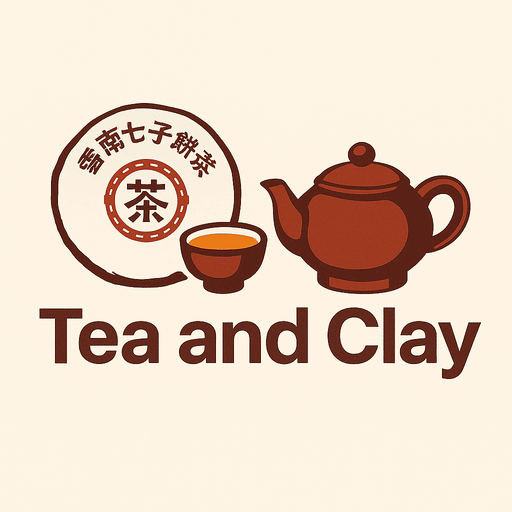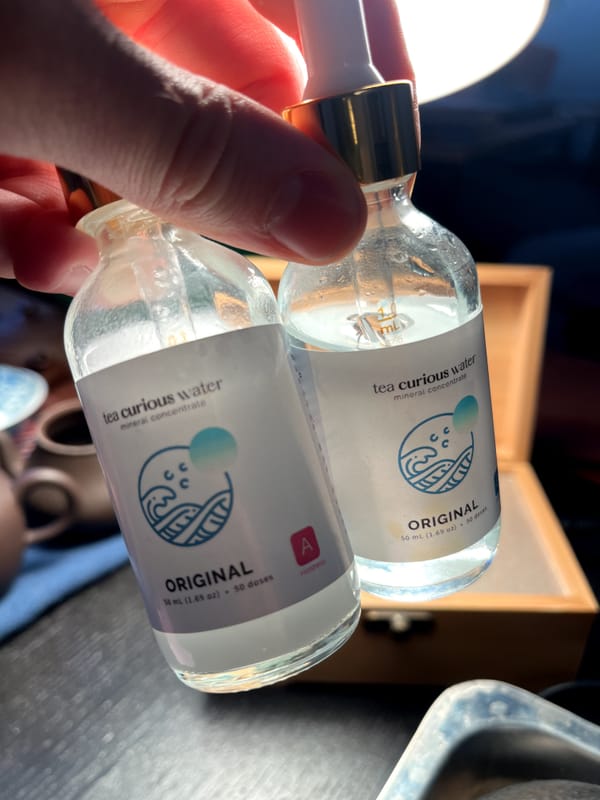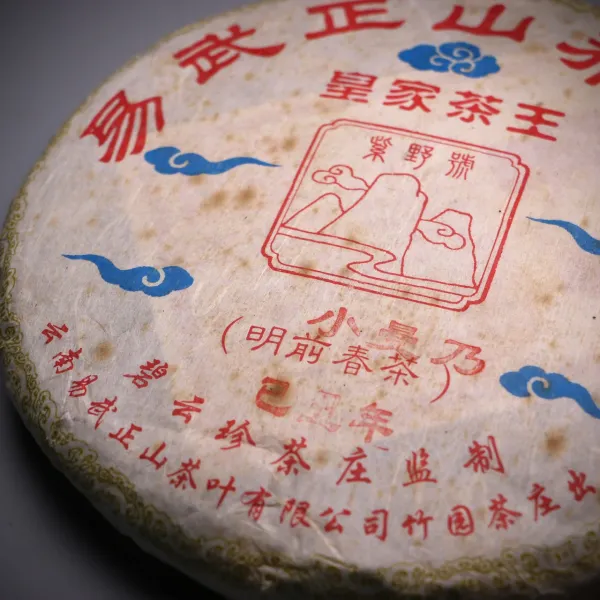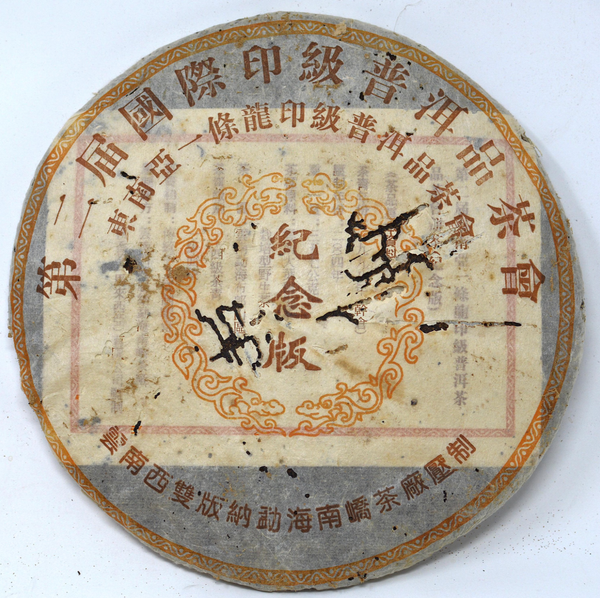Tea...From Mount Olympus?!
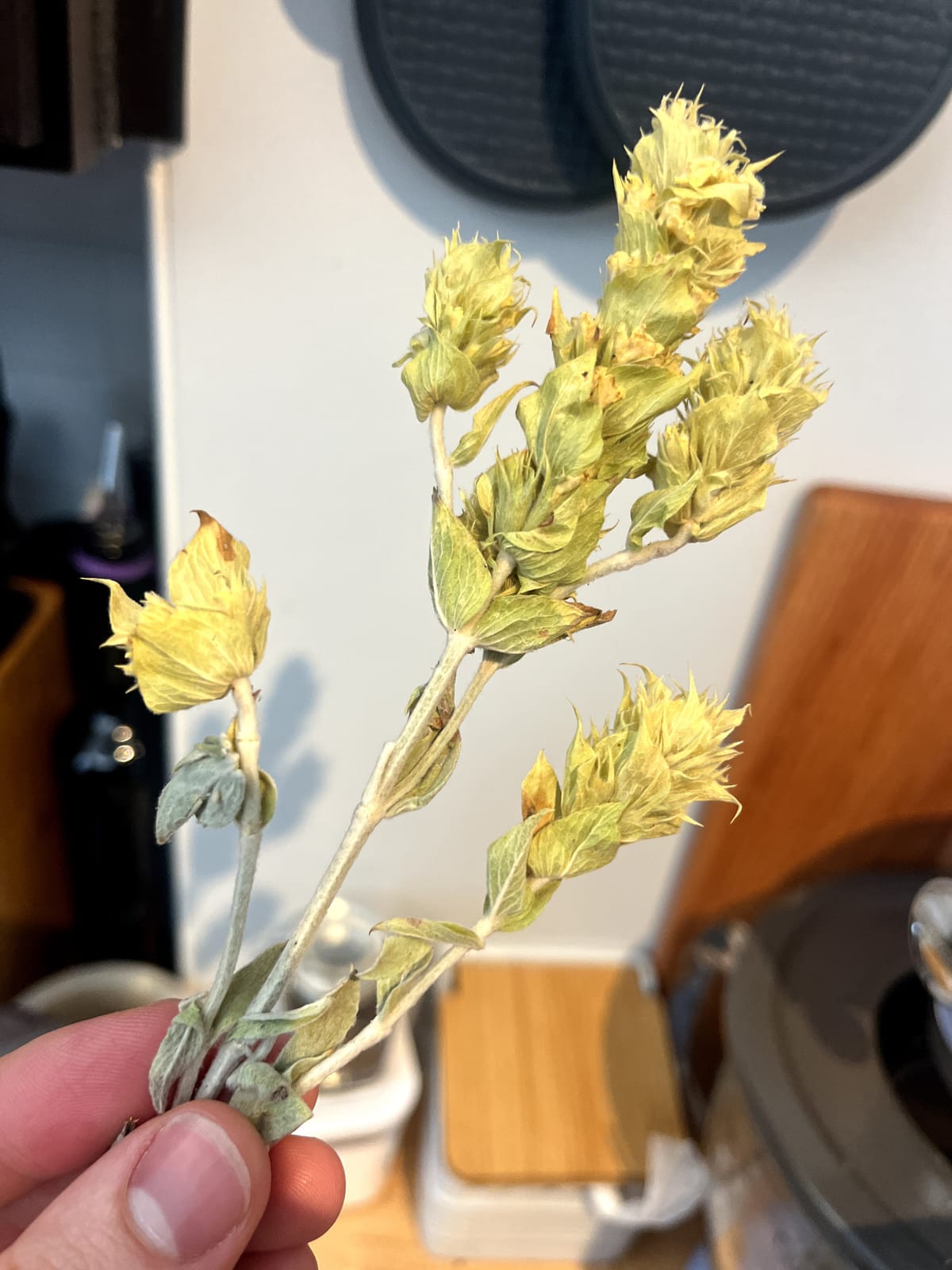
That's right! All the way from Greece - which, I guess feels farther and more unique to me cause of what it is. Although, I suppose it really isn't farther than China and Taiwan from the traditions of the far east, but still.
I suppose it really isn't tea either, but a tisane. It's an herbal, and our trusty companion, ChatGPT, told me to treat as such and simmer it like an herb.
Quick disclaimer just for anyone who isn't sure what I mean:
Not all 'tea' is tea, a lot of them are 'tisanes' (pronounced tea-sahn).
Tea comes from the plant Camellia Sinensis and its varietals, whether sinensis, assamica, or otherwise - but it has to be that plant to truly be tea. Most people just call anything tea-like, tea, but that's technically not correct.
Either way, this was a gift from a new friend who passed on a small stalk to me from a gift from their friend. Don't you love the tea community?
After a quick consultation with Chat, I found the 'proper' way to brew something such as this 'Greek Mountain Tea' (or, Sideritis).
Here was the process
I started off cutting the entire stalk, flowers and all, into 1-2in segments and put them into 2 cups of water (2 cups/stalk) and brought it all to a gentle simmer. Once there, I covered the pot and allowed it to have 5 minutes at a medium heat, maintaining the delicate simmer and low-grade boil to preserve the floral notes of the herb.
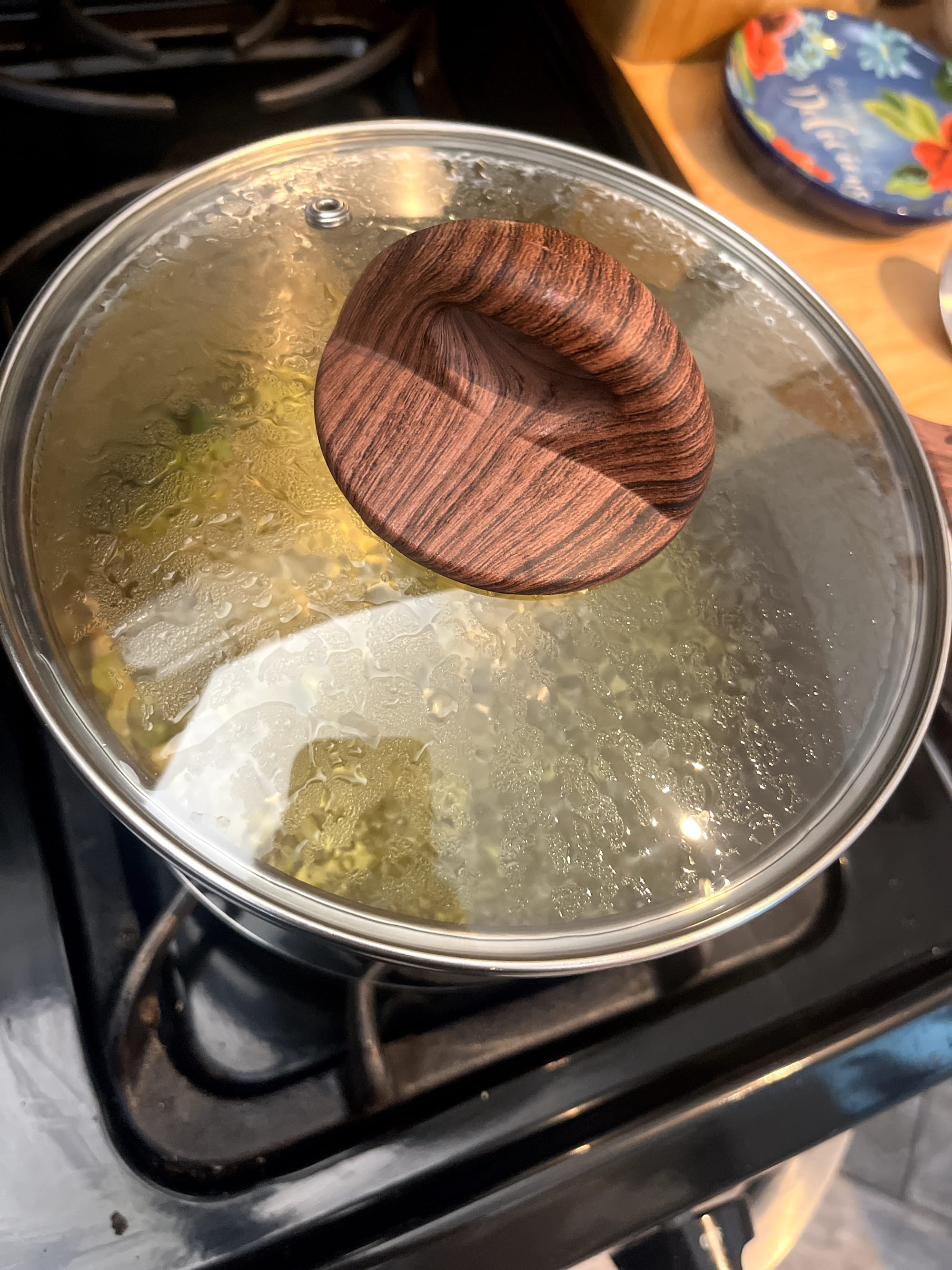
Fast forward about 5 minutes, and a delightful yellow color appeared.
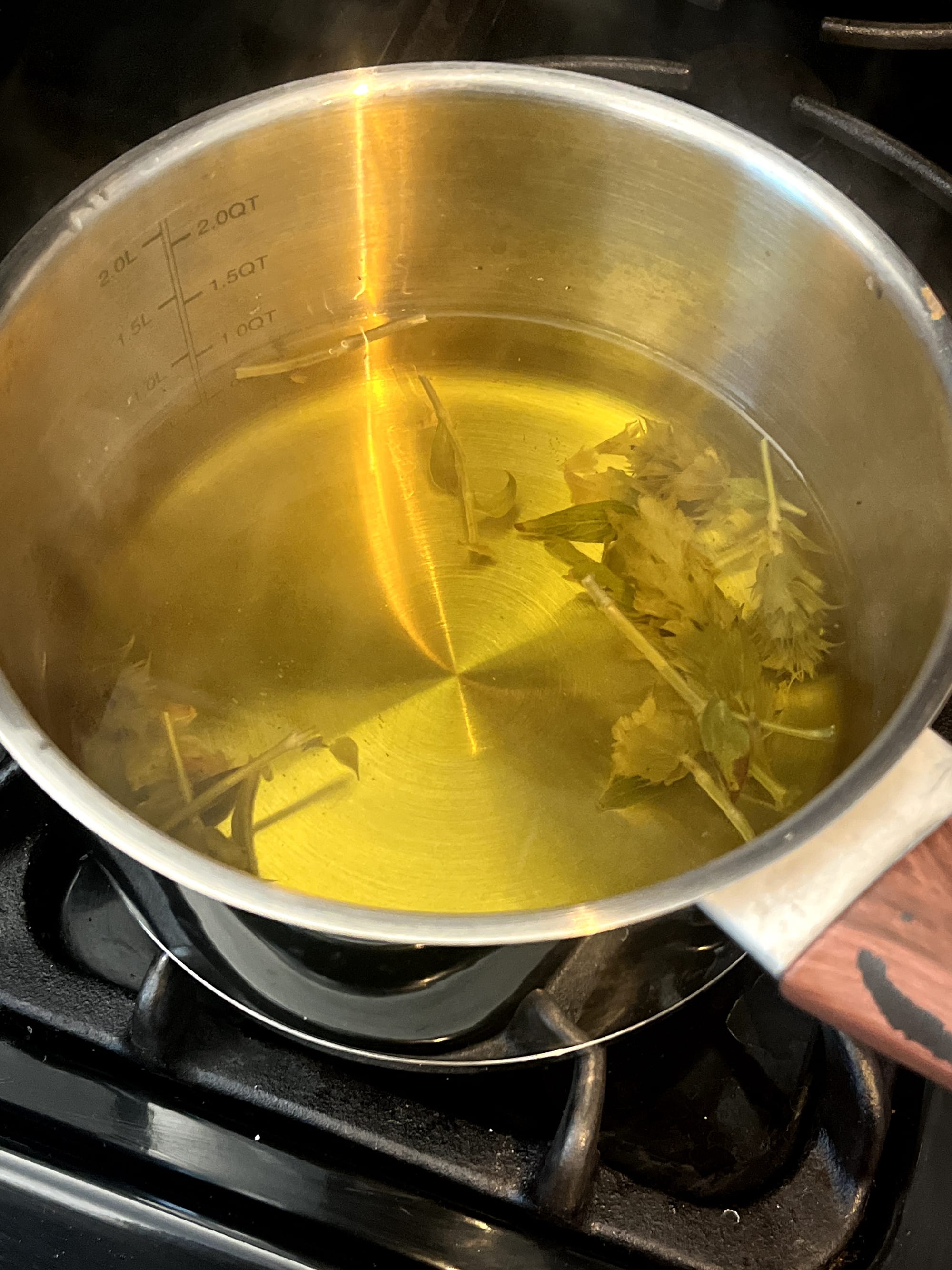
I went ahead and poured out 2 cups for my wife and I, and proceeded to taste it first unadulterated in its natural state.
Fresh, while extremely hot and needing to cool, it became a very soft, pleasant 'tea'. Notes of lemon, but very, very subtle lemon in the far background, were present. Also an earthiness, but again, subtle; nothing like our sheng Pu'ers or anything of the sort. More a soft, dried, green herb that you wouldn't cook with but would end up cutting off and having out on a mountain or on a hike in a campfire brew in a pot on the fire - if that helps give an idea.
Chat said honey is nice with it, so we added some fall-harvest honey brought to us by our local honey bees at the farmers' market. We like to imagine they have little jobs like the tiny goats that are employed to go to various establishments and clear out a hillside of tall grasses.
The bees have something of a little seasonal business going; the spring honey is bright and floral with the typical clover notes, while the fall harvest here takes on a more earthy, deep-brown-amber sweetness to its character. They're quite good at producing different SKUs for the market depending on time of year.
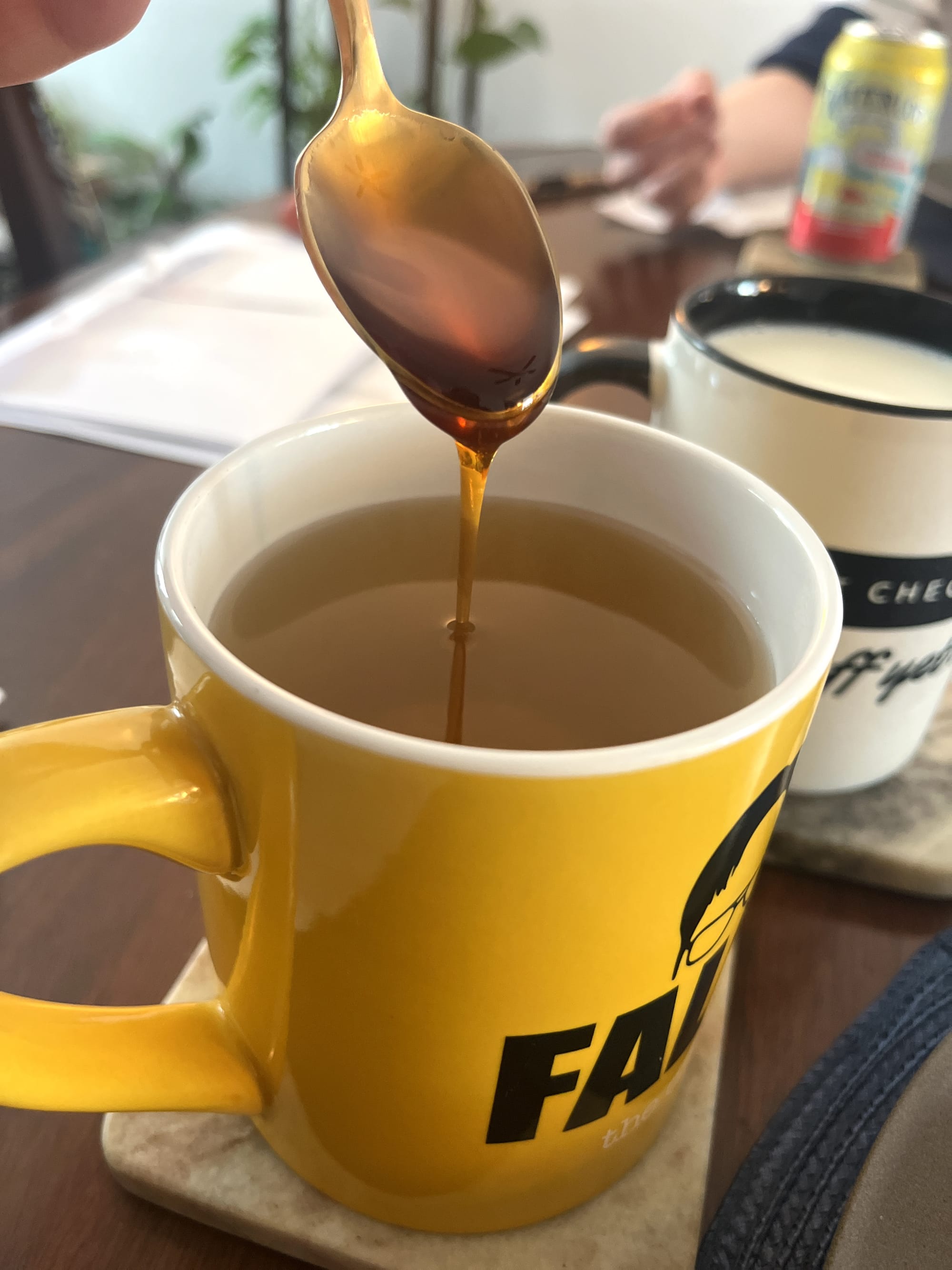
Of course, post honey: We get a more full-bodied appreciation of all the natural tones and flavors that were present but kicked up a notch with the natural local honey.
While not technically tea, I thought it would be interesting to share and read about, as I hadn't encountered this herb before now. I find teasanes to be a great way to start a morning or end a day if you still want to enjoy a hot beverage with depth and nuance rather than just going basic or having a bunch of caffeine or strong tannins / minerality from a sheng.
What are your favorite herbal teasanes?
